Ford Explorer EV vs Land Rover Range Rover Sport - Differences and prices compared
Compare performance (340 HP vs 635 HP), boot space and price (34200 £ vs 78600 £ ) at a glance. Find out which car is the better choice for you – Ford Explorer EV or Land Rover Range Rover Sport?
Costs and Efficiency:
When it comes to price and running costs, the biggest differences usually appear. This is often where you see which car fits your budget better in the long run.
Ford Explorer EV has a significantly advantage in terms of price – it starts at 34200 £ , while the Land Rover Range Rover Sport costs 78600 £ . That’s a price difference of around 44400 £.
As for electric range, the Ford Explorer EV performs convincingly better – achieving up to 602 km, about 484 km more than the Land Rover Range Rover Sport.
Engine and Performance:
Under the bonnet, it becomes clear which model is tuned for sportiness and which one takes the lead when you hit the accelerator.
When it comes to engine power, the Land Rover Range Rover Sport has a convincingly edge – offering 635 HP compared to 340 HP. That’s roughly 295 HP more horsepower.
In acceleration from 0 to 100 km/h, the Land Rover Range Rover Sport is distinct quicker – completing the sprint in 3.80 s, while the Ford Explorer EV takes 5.30 s. That’s about 1.50 s faster.
In terms of top speed, the Land Rover Range Rover Sport performs clearly perceptible better – reaching 290 km/h, while the Ford Explorer EV tops out at 180 km/h. The difference is around 110 km/h.
There’s also a difference in torque: Land Rover Range Rover Sport pulls to a small extent stronger with 800 Nm compared to 679 Nm. That’s about 121 Nm difference.
Space and Everyday Use:
Beyond pure performance, interior space and usability matter most in daily life. This is where you see which car is more practical and versatile.
Both vehicles offer seating for 5 people.
In curb weight, Ford Explorer EV is evident lighter – 1908 kg compared to 2390 kg. The difference is around 482 kg.
In terms of boot space, the Land Rover Range Rover Sport offers evident more room – 647 L compared to 450 L. That’s a difference of about 197 L.
In maximum load capacity, the Land Rover Range Rover Sport performs minimal better – up to 1491 L, which is about 69 L more than the Ford Explorer EV.
When it comes to payload, Land Rover Range Rover Sport clearly perceptible takes the win – 830 kg compared to 585 kg. That’s a difference of about 245 kg.
Who wins the race in the data check?
The Ford Explorer EV is far ahead overall in the objective data comparison.
This result only shows which model scores more points on paper – not which of the two cars feels right for you.
Costs and Consumption
View detailed analysis
Engine and Performance
View detailed analysis
Dimensions and Body
View detailed analysis
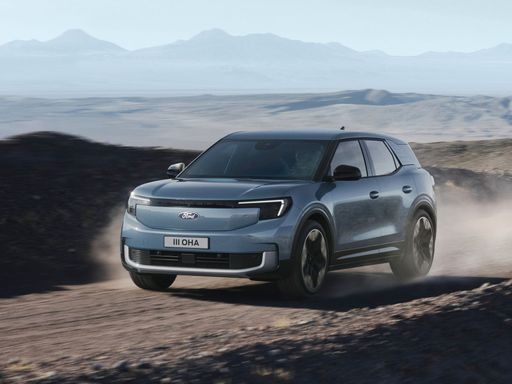
Ford Explorer EV
Ford Explorer EV
The Ford Explorer EV translates the familiar big‑American SUV presence into whisper‑quiet electric motoring, offering roomy seating and a tech‑forward cabin that will please families and road‑trippers alike. It drives with more composure than its boxy looks suggest, blending a comfortable ride and eager acceleration while undercutting the guilt of gas stops — a practical, modern alternative for buyers who want Explorer space with electric charm.
details
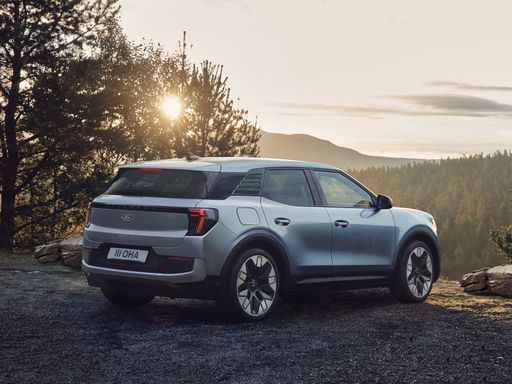
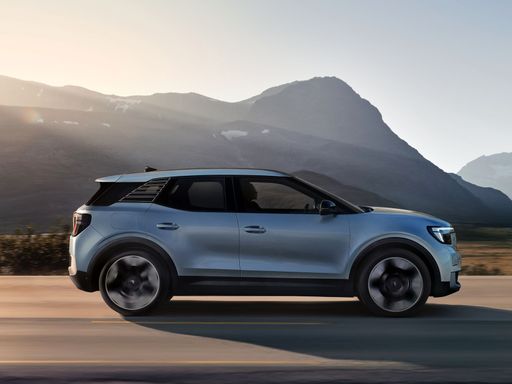
Land Rover Range Rover Sport
The Range Rover Sport pairs unapologetic presence with genuine capability, looking like it belongs on a red carpet while quietly promising to tackle rough tracks when called upon. Inside, the cabin pampers with plush materials and thoughtful tech, making it an irresistible choice for buyers who want luxury, confidence and a touch of adventure.
details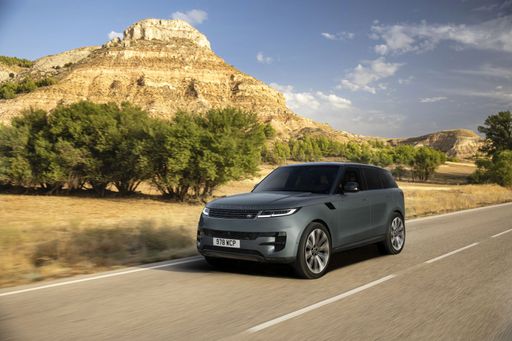
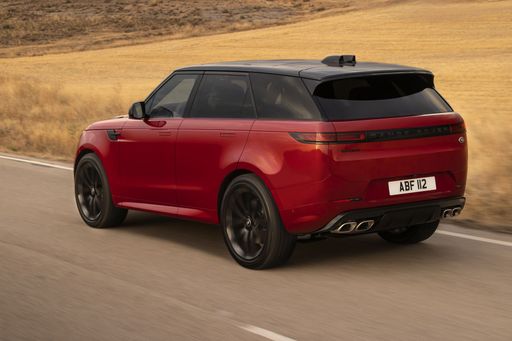
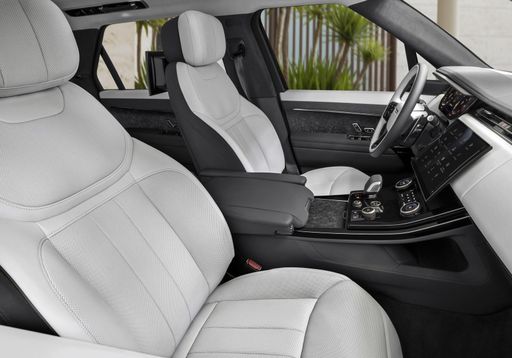
Costs and Consumption |
|
|---|---|
|
Price
34200 - 48800 £
|
Price
78600 - 175700 £
|
|
Consumption L/100km
-
|
Consumption L/100km
2.7 - 11.7 L
|
|
Consumption kWh/100km
14.5 - 17.2 kWh
|
Consumption kWh/100km
-
|
|
Electric Range
360 - 602 km
|
Electric Range
116 - 118 km
|
|
Battery Capacity
52 - 79 kWh
|
Battery Capacity
-
|
|
co2
0 g/km
|
co2
61 - 266 g/km
|
|
Fuel tank capacity
-
|
Fuel tank capacity
90 L
|
Dimensions and Body |
|
|---|---|
|
Body Type
SUV
|
Body Type
SUV
|
|
Seats
5
|
Seats
5
|
|
Doors
5
|
Doors
5
|
|
Curb weight
1908 - 2179 kg
|
Curb weight
2390 - 2810 kg
|
|
Trunk capacity
445 - 450 L
|
Trunk capacity
647 L
|
|
Length
4468 mm
|
Length
4970 mm
|
|
Width
1871 mm
|
Width
2043 mm
|
|
Height
1630 - 1639 mm
|
Height
1814 mm
|
|
Max trunk capacity
1417 - 1422 L
|
Max trunk capacity
1491 L
|
|
Payload
561 - 585 kg
|
Payload
640 - 830 kg
|
Engine and Performance |
|
|---|---|
|
Engine Type
Electric
|
Engine Type
Plugin Hybrid, Petrol MHEV, Diesel MHEV
|
|
Transmission
Automatic
|
Transmission
Automatic
|
|
Transmission Detail
Reduction Gearbox
|
Transmission Detail
Automatic Gearbox
|
|
Drive Type
Rear-Wheel Drive, All-Wheel Drive
|
Drive Type
All-Wheel Drive
|
|
Power HP
170 - 340 HP
|
Power HP
249 - 635 HP
|
|
Acceleration 0-100km/h
5.3 - 8.7 s
|
Acceleration 0-100km/h
3.8 - 7.7 s
|
|
Max Speed
160 - 180 km/h
|
Max Speed
290 km/h
|
|
Torque
310 - 679 Nm
|
Torque
570 - 800 Nm
|
|
Number of Cylinders
-
|
Number of Cylinders
6 - 8
|
|
Power kW
125 - 250 kW
|
Power kW
183 - 467 kW
|
|
Engine capacity
-
|
Engine capacity
2997 - 4395 cm3
|
General |
|
|---|---|
|
Model Year
2024 - 2025
|
Model Year
2025
|
|
CO2 Efficiency Class
A
|
CO2 Efficiency Class
B, G
|
|
Brand
Ford
|
Brand
Land Rover
|
What drive types are available for the Ford Explorer EV?
The Ford Explorer EV is available as Rear-Wheel Drive or All-Wheel Drive.
